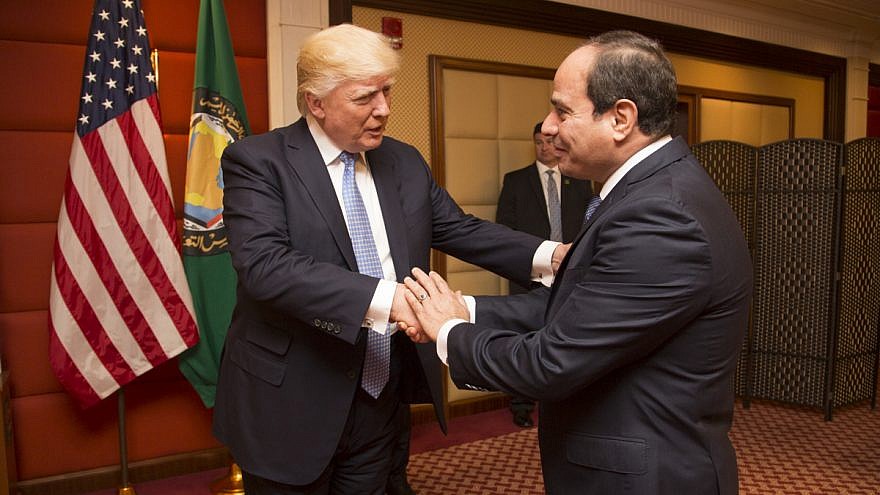The United States has threatened Egypt with sanctions were the latter to acquire Russian warplanes.
U.S. Secretary of State Mike Pompeo and U.S. Secretary of Defense Mark Esper told Egyptian Defense Minister Mohamed Zaki in a letter on Wednesday to cancel a $2 billion agreement to purchase more than 20 Russian Su-35 jet fighters, reported The Wall Street Journal on Thursday.
“Major new arms deals with Russia would—at a minimum—complicate future U.S. defense transactions with and security assistance to Egypt,” stated the letter.
In recent decades, Washington has given Cairo billions in economic and military assistance, including providing F-16 fighter planes, attack helicopters and other equipment.
The Trump administration has delayed enacting CAATSA sanctions against Turkey, a fellow NATO ally, for acquiring the Russian S-400 air-missile defense system, even though the Pentagon ousted Ankara from the F-35 fighter-jet program earlier this year.
Visiting the White House on Wednesday, Turkish President Recep Tayyip Erdoğan called for a constructive dialogue with Congress over the S-400 and F-35, reiterating Turkey’s desire to acquire U.S. Patriot missiles.
“That Egypt is strengthening ties with Russia unfortunately is hardly new,” Anna Borshchevskaya of the Washington Institute for Near East Policy told JNS. “It’s a continuation of a trajectory that has been years in the making, it began under the [Barack] Obama administration.”
“While it’s important to finally recognize this trend, we have become over reliant on sanctions and often turn to them as a substitute for policy,” she continued. “Don’t get me wrong; sanctions are an important and useful tool, but they are only one tool in the arsenal. They take a long time to work, and they work best when they are utilized as part of a broader and coherent policy effort, where sanctions are one of multiple tools utilized.”


























